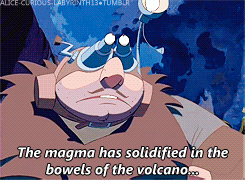Your gateway to endless inspiration
Atlantis - Blog Posts

Ey look! I made a bridge! It took me, what, 10 seconds? 11 tops…
Another really well done crossover...seriously, anything by Cassiiopheyia is worth the watch in my opinion
DP X DC PROMT: ATLANTIS
Maddie and Jack did not react well to Danny being a ghost. They immediately attempted to catch him and experiment on him.
Jazz had enough time to throw a duffle bag of clothes and stuff at him and tell him to run. Danny rushed over to Sam's house, and she called Tucker, who came rushing over in a hurry. They added some money and tech to the duffle, before the Fenton parents came knocking at the door to Sam's house, inquiring as to their son's whereabouts.
Danny went ghost and jumped out the window.
He travels for days, aimlessly stopping in several cities, such as Gotham, Metropolis, and Star City. In all of them, though, the Fentons manage to track him down through ecto-location tech.
Danny has been in his ghost form for days now, and hasn't had access to enough ectoplasm to keep him fully solid, so he has essentially vaporized his legs into a tail to conserve energy.
He also has not slept in far longer than is advisable, so his sleep-deprived brain decides "fuck it, I look like a mermaid, why not try to live in the ocean? It's not like my parents can get to me there."
Aquaman is extremely concerned about the new, apparently super-powerful, mer that has appeared recently near the outskirts of his kingdom.
If you don't wanna miss out on another "Megamind" or "Atlantis", go and watch "Spies in Disguise". I feel like it has to be more acknowledged.

People who believe Atlantis is real are so silly; Imagine if thousands of years from now people of the future thought that the Lord of the Rings books weren't fiction and started to look for Middle Earth.

While I’m playing tomb raider, Atlantis looks kind of like an alien spacecraft,and the creatures look like aliens.
GIW finds out, but Tucker and Sam run with Danny too. He's pretty sure there's no place on Earth they can hide that the GIW won't hunt them down eventually. Unless...
He takes them somewhere the GIW can never go. He doesn't want to leave Earth, and he won't, because there might be another option.
Liminal Abilities are meant to adapt with the user. They're meant to guarantee survival.
Danny's adapted so much he became only half human. His ghost form can very easily adapt to pretty much anything, so his insane plan isn't so far fetched for him.
He, Sam, and Tucker steal a boat. It's technically a yacht, and it's technically Sam's parents, but they got rid of the GPS tracker and drove it out to sea until it ran out of gas.
He has Sam and Tucker ingest straight ectoplasm, and then hang out in the water for a few hours.
He's trying to trigger their liminality to make them akin to Atlanteans; able to breathe and thrive underwater, but still able to go to land if the need arose.
They develop mer tails instead.
Whoops.
How Big is the Leviathan?
Anyone remember the Leviathan from Atlantis the Lost Empire?

If ya don’t remember here’s the scene.
One thing I remember was the SIZE of the Leviathan. It was the biggest thing I’d seen on screen at the time. But I always wondered HOW big was it? I assumed it was like Kaiju sized. Most Kaiju are around 300 feet.


Yea the submarine in Atlantis is as big as Godzila. That…kinda surprised me.
So…IF the Ship is around 380 feet how big is the Leviathan?

So…my calculations are probably off, but I just wanted to get a better sense of size of the Leviathan. And uh….It’s over 3,050 feet!
THAT THING IS MASSIVE!!

IF I’m wrong! Please Correct me! Cause I can’t imagine this is right!

"Seven Wonders" by Peter Lerangis: Marco Ramsay's BD
August, 12 was Marco Ramsay's 20 BirthDay, so we did this collab to celebrate it. My part was line-art.
@one-hell-bunny did the sketch.
@unyazzzzzz did the colors.
Sixty Years of Exploration, Innovation, and Discovery!

Exactly sixty years ago today, we opened our doors for the first time. And since then, we have opened up a universe of discovery and innovation.
There are so many achievements to celebrate from the past six decades, there’s no way we can go through all of them. If you want to dive deeper into our history of exploration, check out NASA: 60 Years and Counting.
In the meantime, take a moonwalk down memory lane with us while we remember a few of our most important accomplishments from the past sixty years!

In 1958, President Eisenhower signed the National Aeronautics and Space Act, which effectively created our agency. We officially opened for business on October 1.
To learn more about the start of our space program, watch our video: How It All Began.

Alongside the U.S. Air Force, we implemented the X-15 hypersonic aircraft during the 1950s and 1960s to improve aircraft and spacecraft.
The X-15 is capable of speeds exceeding Mach 6 (4,500 mph) at altitudes of 67 miles, reaching the very edge of space.
Dubbed the “finest and most productive research aircraft ever seen,” the X-15 was officially retired on October 24, 1968. The information collected by the X-15 contributed to the development of the Mercury, Gemini, Apollo, and Space Shuttle programs.
To learn more about how we have revolutionized aeronautics, watch our Leading Edge of Flight video.

On July 20, 1969, Neil Armstrong and Buzz Aldrin became the first humans to walk on the moon. The crew of Apollo 11 had the distinction of completing the first return of soil and rock samples from beyond Earth.
Astronaut Gene Cernan, during Apollo 17, was the last person to have walked on the surface of the moon. (For now!)
The Lunar Roving Vehicle was a battery-powered rover that the astronauts used during the last three Apollo missions.
To learn more about other types of technology that we have either invented or improved, watch our video: Trailblazing Technology.

Our long-term Earth-observing satellite program began on July 23, 1972 with the launch of Landsat 1, the first in a long series (Landsat 9 is expected to launch in 2020!) We work directly with the U.S. Geological Survey to use Landsat to monitor and manage resources such as food, water, and forests.
Landsat data is one of many tools that help us observe in immense detail how our planet is changing. From algae blooms to melting glaciers to hurricane flooding, Landsat is there to help us understand our own planet better.
Off the Earth, for the Earth.
To learn more about how we contribute to the Earth sciences, watch our video: Home, Sweet Home.

Space Transportation System-1, or STS-1, was the first orbital spaceflight of our Space Shuttle program.
The first orbiter, Columbia, launched on April 12, 1981. Over the next thirty years, Challenger, Discovery, Atlantis, and Endeavour would be added to the space shuttle fleet.
Together, they flew 135 missions and carried 355 people into space using the first reusable spacecraft.

On January 16, 1978, we selected a class of 35 new astronauts--including the first women and African-American astronauts.
And on June 18, 1983, Sally Ride became the first American woman to enter space on board Challenger for STS-7.
To learn more about our astronauts, then and now, watch our Humans in Space video.

Everybody loves Hubble! The Hubble Space Telescope was launched into orbit on April 24, 1990, and has been blowing our minds ever since.
Hubble has not only captured stunning views of our distant stars and galaxies, but has also been there for once-in-a-lifetime cosmic events. For example, on January 6, 2010, Hubble captured what appeared to be a head-on collision between two asteroids--something no one has ever seen before.
In this image, Hubble captures the Carina Nebula illuminating a three-light-year tall pillar of gas and dust.
To learn more about how we have contributed to our understanding of the solar system and beyond, watch our video: What’s Out There?

Cooperation to build the International Space Station began in 1993 between the United States, Russia, Japan, and Canada.
The dream was fully realized on November 2, 2000, when Expedition 1 crew members boarded the station, signifying humanity’s permanent presence in space!
Although the orbiting lab was only a couple of modules then, it has grown tremendously since then!
To learn more about what’s happening on the orbiting outpost today, visit the Space Station page.

We have satellites in the sky, humans in orbit, and rovers on Mars. Very soon, we will be returning humankind to the Moon, and using it as a platform to travel to Mars and beyond.
And most importantly, we bring the universe to you.
What are your favorite NASA moments? We were only able to share a few of ours here, but if you want to learn about more important NASA milestones, check out 60 Moments in NASA History or our video, 60 Years in 60 Seconds.
Make sure to follow us on Tumblr for your regular dose of space: http://nasa.tumblr.com.











